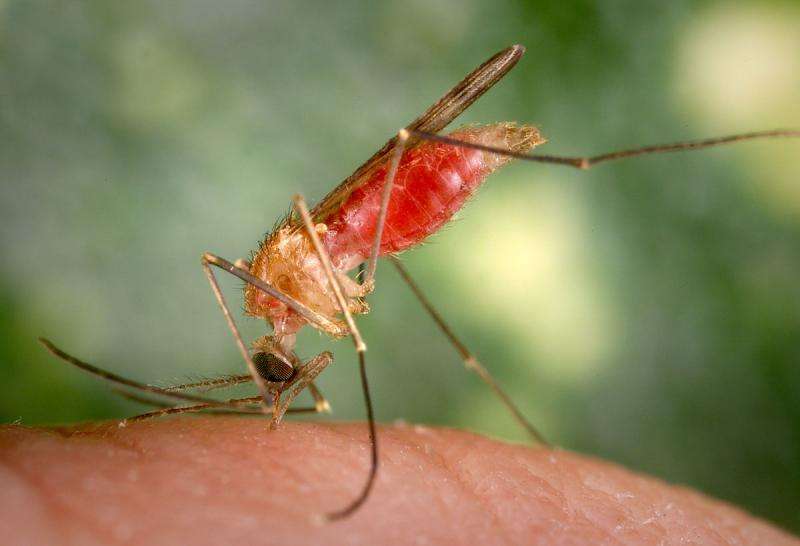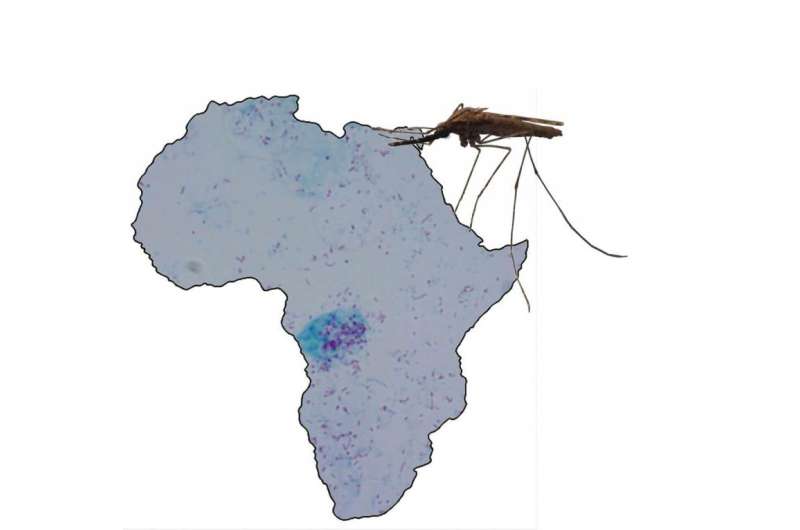June 9, 2015 report
Mosquitoes may also be a vector for Rickettsia felis

(Phys.org)—A team of researchers with Aix Marseille Université in France has found that mosquitoes might be not only carrying the bacteria Rickettsia felis, but might be transmitting it to humans in Africa as well, causing fevers and other symptoms. In their paper published in Proceedings of the National Academy of Sciences, the team describes lab experiments they conducted with samples of the bacteria and mosquitoes and what they found by doing so.
R. felis is a type of bacteria that has been known to infect people, causing fever, rash, headache and myalgia (muscle pain). Up till now, however, it has been thought that it could only be transmitted to people via fleas and ticks. The results of this new study suggest that it can also be transmitted by mosquitoes.
The researchers report that they began their investigation as a means to identify instances of "fever of unknown origin" in parts of Africa where malaria is a big problem. They wondered if the same mosquitoes that carried malaria parasites were also carrying R. felis. To find out they carried out a series of experiments in their lab. First they obtained and fed the same type of mosquito responsible for malaria problems in Africa—some got blood with R. felis in it, others got cellular media with the bacteria in it. They then tested the mosquitoes to see if they had the bacteria in their bodies—they did, both in their salivary glands and in their ovaries, for up to two weeks. The researchers also found the bacteria on bits of cotton used to feed the mosquitoes, suggesting the insects could transmit the bacteria to other media through their saliva. They then allowed some of the infected mosquitoes to feed on healthy mice and discovered that the mice became infected as a result, which suggests the mosquitoes could do the same for humans.
The study does not prove that the mysterious fevers being reported in Africa are due to R. felis infections either by fleas, ticks or mosquitoes, but it does offer strong evidence that such is the case. More research will have to be done before it can be proven definitively, but the results of this study represent a major breakthrough in helping to treat those afflicted.

Journal information: Proceedings of the National Academy of Sciences
© 2015 Phys.org


















